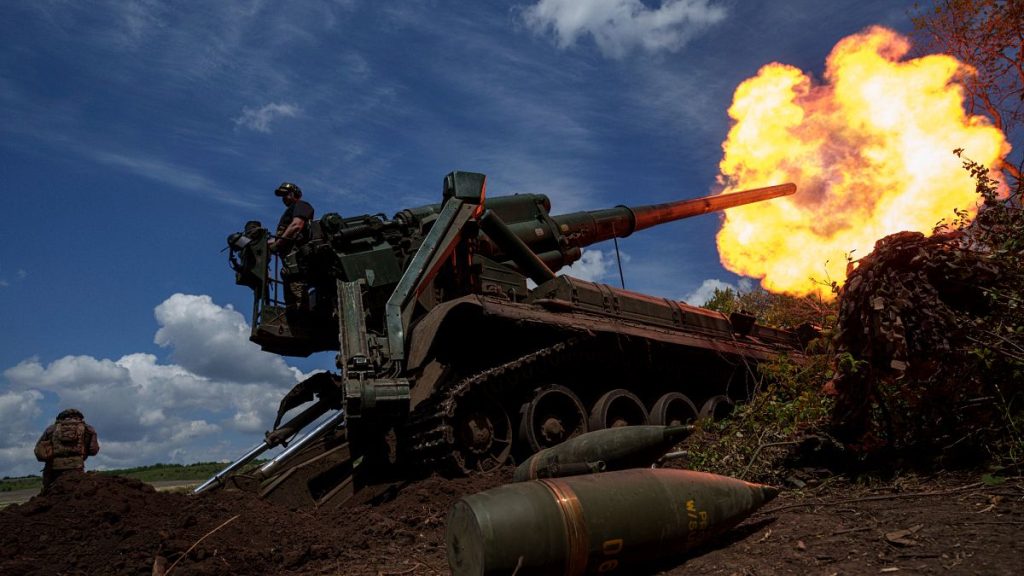Recent Diplomatic Efforts to End the War in Ukraine
Trump Administration’s Push for a Negotiated Settlement
US President Donald Trump’s administration has intensified efforts to bring an end to the war in Ukraine, which marks nearly three years since Russia launched its full-scale invasion in 2022. National Security Adviser Mike Waltz revealed that senior administration officials are set to meet with European counterparts this week to discuss strategies for ending the conflict. These talks come amid reports of a recent phone call between Trump and Russian President Vladimir Putin, where the two leaders purportedly discussed steps toward a negotiated solution. However, neither the White House nor the Kremlin has officially confirmed the conversation. Waltz declined to comment on the matter during a television interview but emphasized the administration’s resolve to pressure Moscow into negotiations, including through the use of sanctions, tariffs, and taxes.
The Economic Pressure on Russia and the Role of European Allies
Waltz highlighted the precarious state of the Russian economy, which has been battered by Western sanctions, inflation, and a severe labor shortage. Despite these challenges, Putin faces little domestic pressure to end the war due to his crackdown on dissent, marking the harshest repression since Soviet times. The Trump administration is also seeking to claw back some of the financial and military assistance the US has provided to Ukraine, with Waltz arguing that the costs of the war need to be recouped. He suggested that this effort could involve partnerships with Ukraine to exploit its natural resources, such as oil and gas, while also promoting American exports. Waltz underscored the need for European allies to take on a more prominent role in supporting Ukraine moving forward, stating, "The Europeans have to own this conflict going forward."
The Role of US Officials in International Diplomacy
Several high-ranking US officials are scheduled to participate in key international forums this week, where the war in Ukraine is expected to dominate discussions. Vice President JD Vance is set to attend an artificial intelligence summit in Paris before heading to the Munich Security Conference, where Ukrainian President Volodymyr Zelenskyy will lead his country’s delegation. Other prominent attendees include Secretary of State Marco Rubio, Defence Secretary Pete Hegseth, and Trump’s special envoy on Ukraine and Russia, Keith Kellogg. Hegseth is also expected to join the Ukraine Defence Contact Group meeting at NATO headquarters in Brussels, where representatives from around 50 countries will gather to coordinate weapons and ammunition supplies for Ukraine.
Trump’s Vision for Ending the War
During the presidential election campaign, Trump claimed he could end the war in Ukraine within 24 hours, later extending his timeline to six months. However, he has yet to provide detailed plans for achieving this goal. The president has suggested that the US is already engaged in "very serious" discussions with Russia about Ukraine, bypassing Kyiv in the process. This approach contrasts sharply with the stance of the Biden administration, which adhered to Zelenskyy’s principle of "Nothing about Ukraine without Ukraine." Trump has also expressed optimism about the potential for "significant" action with Putin to end the war, citing Russia’s heavy casualties and economic struggles. However, critics warn that excluding Ukraine from peace talks could embolden authoritarian leaders in China, North Korea, and Iran by signaling that aggression can yield results.
Pressure on Kyiv and the Risks of Exclusion
Zelenskyy has been vocal about the dangers of excluding Ukraine from any peace negotiations, arguing that such a move could send a dangerous message to authoritarian regimes worldwide. He has emphasized that any agreement reached without Kyiv’s input would effectively reward Putin’s aggressive actions, potentially encouraging similar behavior from other autocratic leaders. Despite these concerns, Trump has indicated that his administration is willing to proceed with talks even if Ukraine is not at the table. This shift in US policy has raised alarms among allies and diplomats, who fear that isolating Ukraine could undermine its sovereignty and weaken the international coalition supporting it.
The Road Ahead and the Future of the Conflict
As the war in Ukraine approaches its third year, the international community remains divided on the path forward. While the Trump administration is pushing for a negotiated settlement, European allies are being called upon to take greater responsibility for supporting Ukraine. The upcoming meetings in Munich and Brussels will likely be pivotal in determining the next phase of the conflict. However, with Russia’s economy showing resilience despite sanctions and Putin facing no domestic pressure to end the war, a swift resolution appears unlikely. The coming weeks will reveal whether the Trump administration’s diplomatic efforts can yield tangible progress or if the conflict will continue to drag on, with far-reaching implications for global security and stability.












